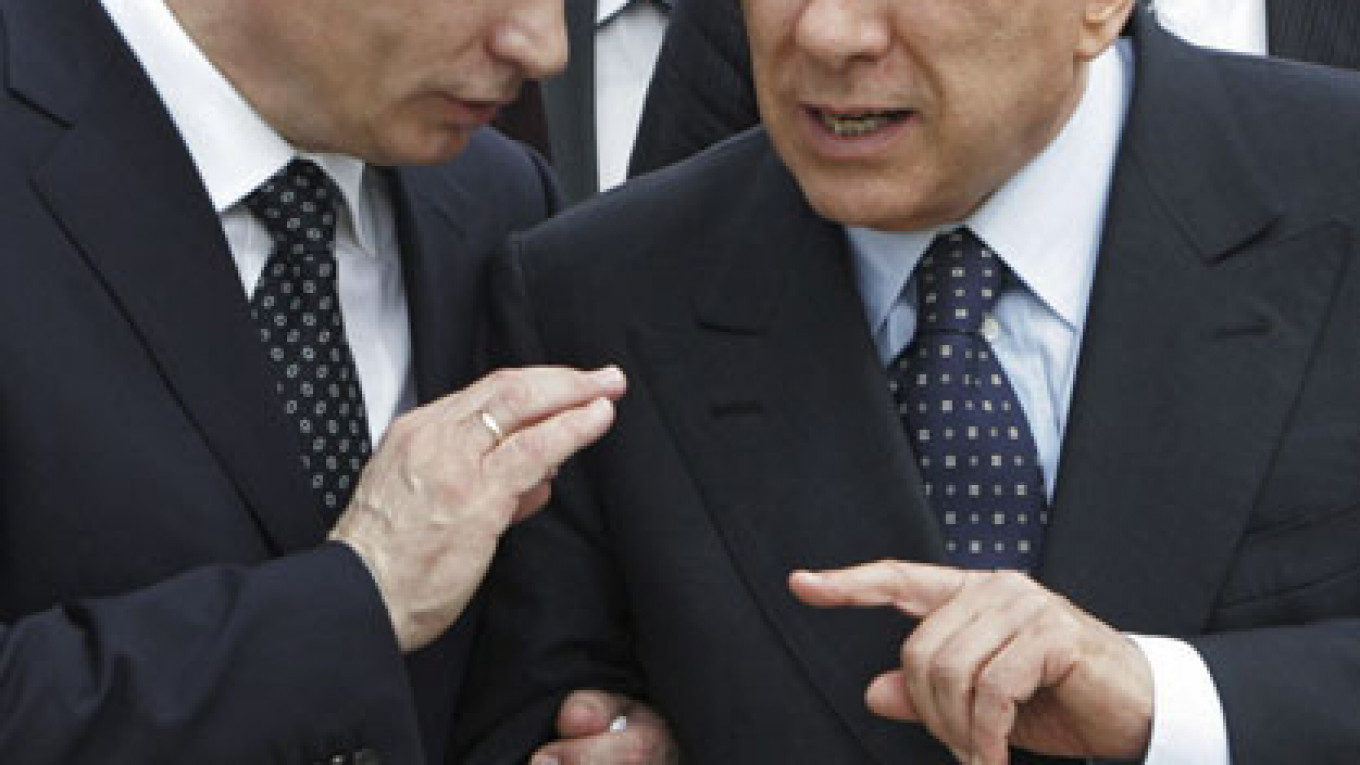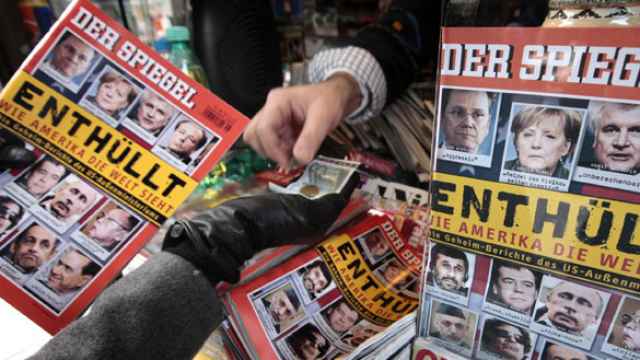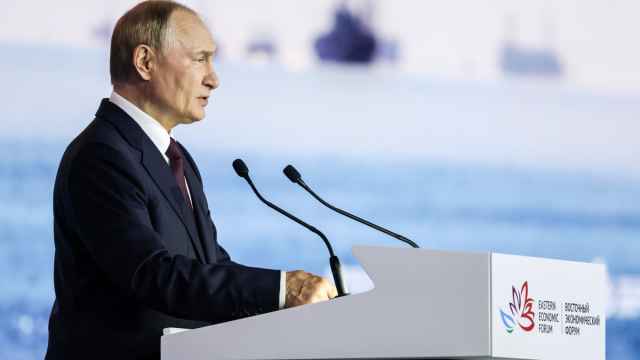WASHINGTON ― Hundreds of thousands of State Department documents leaked Sunday revealed a hidden world of backstage international diplomacy, divulging candid comments from world leaders and detailing occasional U.S. pressure tactics aimed at hot spots such as Afghanistan, Iran and North Korea.
The classified diplomatic cables released by online whistleblower WikiLeaks and reported on by news organizations in the United States and Europe provided often unflattering assessments of foreign leaders, including those of Germany and Italy.
The cables also contained revelations about long-simmering nuclear trouble spots, detailing U.S., Israeli and Arab fears of Iran's growing nuclear program; U.S. concerns about Pakistan's atomic arsenal; and U.S. discussions about a united Korean peninsula as a long-term solution to North Korean aggression.
There are also U.S. memos encouraging U.S. diplomats at the United Nations to collect detailed data about the UN secretary-general, his team and foreign diplomats ― going beyond what is considered the normal run of information-gathering expected in diplomatic circles.
None of the revelations is particularly explosive, but their publication could prove problematic for the officials concerned.
The documents published by The New York Times, France's Le Monde, Britain's Guardian newspaper, German magazine Der Spiegel and others laid out the behind-the-scenes conduct of Washington's international relations, shrouded in public by platitudes, smiles and handshakes at photo sessions among senior officials.
White House Response
The White House immediately condemned the release of the WikiLeaks documents, saying "such disclosures put at risk our diplomats, intelligence professionals, and people around the world who come to the United States for assistance in promoting democracy and open government."
It also noted that "by its very nature, field reporting to Washington is candid and often incomplete information. It is not an expression of policy, nor does it always shape final policy decisions," the White House said.
"Nevertheless, these cables could compromise private discussions with foreign governments and opposition leaders, and when the substance of private conversations is printed on the front pages of newspapers across the world, it can deeply impact not only U.S. foreign policy interests, but those of our allies and friends around the world," the White House said.
State Department spokesman P.J. Crowley played down the spying allegations. "Our diplomats are just that, diplomats," he said. "They collect information that shapes our policies and actions. This is what diplomats, from our country and other countries, have done for hundreds of years."
On its website, The New York Times said "the documents serve an important public interest, illuminating the goals, successes, compromises and frustrations of American diplomacy in a way that other accounts cannot match."
WikiLeaks founder Julian Assange claimed that the administration was trying to cover up alleged evidence of serious "human rights abuse and other criminal behavior" by the U.S. government.
The documents were again available on the WikiLeaks website Sunday afternoon. The site was inaccessible much of the day, and the group claimed that it was under a cyberattack.
But extracts of the more than 250,000 cables posted online by news outlets that had been given advance copies of the documents showed deep U.S. concerns about Iranian and North Korean nuclear programs along with fears about regime collapse in Pyongyang.
From the Mideast to the UN
The Guardian said some cables showed King Abdullah of Saudi Arabia repeatedly urging the United States to attack Iran to destroy its nuclear program. The newspaper also said officials in Jordan and Bahrain have openly called for Iran's nuclear program to be stopped by any means and that leaders of Saudi Arabia, the United Arab Emirates and Egypt referred to Iran "as 'evil,' an 'existential threat' and a power that 'is going to take us to war,'" The Guardian said.
Those documents may prove the most problematic because even though the concerns of the Gulf Arab states are known, their leaders rarely offer such stark appraisals in public.
The New York Times highlighted documents that indicated the U.S. and South Korea were "gaming out an eventual collapse of North Korea" and discussing the prospects for a unified country if the isolated, communist North's economic troubles and political transition lead it to implode.
The paper also cited documents showing the U.S. used hardline tactics to win approval from countries to accept freed detainees from Guantanamo Bay. It said Slovenia was told to take a prisoner if its president wanted to meet with President Barack Obama and said the Pacific island of Kiribati was offered millions of dollars to take in a group of detainees.
It also cited a cable from the U.S. Embassy in Beijing that included allegations from a Chinese contact that China's Politburo directed a cyber intrusion into Google's computer systems as part of a "coordinated campaign of computer sabotage carried out by government operatives, private security experts and Internet outlaws."
Le Monde said another memo asked U.S. diplomats to collect contact information about UN officials that included Internet passwords, credit card numbers and frequent flyer numbers. They were asked to obtain fingerprints, ID photos, DNA and iris scans of people of interest to the United States, Le Monde said.
Cables on Europe, North Africa
The New York Times said another batch of documents raised questions about Italian Prime Minister Silvio Berlusconi and his relationship with Prime Minister Vladimir Putin. One cable said Berlusconi "appears increasingly to be the mouthpiece of Putin" in Europe, the Times reported.
Italy's Foreign Minister Franco Frattini on Sunday called the release the "Sept. 11 of world diplomacy," in that everything that had once been accepted as normal has now changed.
Der Spiegel reported that the cables portrayed German Chancellor Angela Merkel and Foreign Minister Guido Westerwelle in unflattering terms. It said American diplomats saw Merkel as risk-averse and Westerwelle as largely powerless.
Libyan leader Moammar Gadhafi, meanwhile, was described as erratic and in the near constant company of a Ukrainian nurse who was described in one cable as "a voluptuous blonde," according to the Times.
The Obama administration has been bracing for the release for the past week. Top officials have notified allies that the contents of the diplomatic cables could prove embarrassing because they contain candid assessments of foreign leaders and their governments, as well as details of American policy.
The State Department's top lawyer warned Assange late Saturday that lives and military operations would be put at risk if the cables were released. Legal adviser Harold Koh said WikiLeaks would be breaking the law if it went ahead. He also rejected a request from Assange to cooperate in removing sensitive details from the documents.
Canadian Foreign Minister Lawrence Cannon said: "Irresponsible leaks like these are deplorable and do not serve anybody's national interests. The perpetrators of these leaks may threaten our national security."
Assange, in a response released Sunday by his London lawyer, said he had no intention of halting the release.
The New York Times said the documents involved 250,000 cables ― daily message traffic between the State Department and more than 270 U.S. diplomatic outposts around the world. The newspaper said that in its reporting, it attempted to exclude information that would endanger confidential informants or compromise national security.
The Times said that after its own redactions, it sent Obama administration officials the cables that it planned to post and invited them to challenge publication of any information they deemed would harm U.S. national interest. After reviewing the cables, the officials suggested additional redactions, the Times said. The newspaper said it agreed to some, but not all.
Also Sunday, the Pentagon released a summary of precautions taken since WikiLeaks published stolen war logs from the conflicts in Iraq and Afghanistan. Since August, the Pentagon has changed the way portable computer storage devices such as flash drives can be used with classified systems and made it harder for one person acting alone to download material from a classified network and place it on an unclassified one.
A Message from The Moscow Times:
Dear readers,
We are facing unprecedented challenges. Russia's Prosecutor General's Office has designated The Moscow Times as an "undesirable" organization, criminalizing our work and putting our staff at risk of prosecution. This follows our earlier unjust labeling as a "foreign agent."
These actions are direct attempts to silence independent journalism in Russia. The authorities claim our work "discredits the decisions of the Russian leadership." We see things differently: we strive to provide accurate, unbiased reporting on Russia.
We, the journalists of The Moscow Times, refuse to be silenced. But to continue our work, we need your help.
Your support, no matter how small, makes a world of difference. If you can, please support us monthly starting from just $2. It's quick to set up, and every contribution makes a significant impact.
By supporting The Moscow Times, you're defending open, independent journalism in the face of repression. Thank you for standing with us.
Remind me later.






